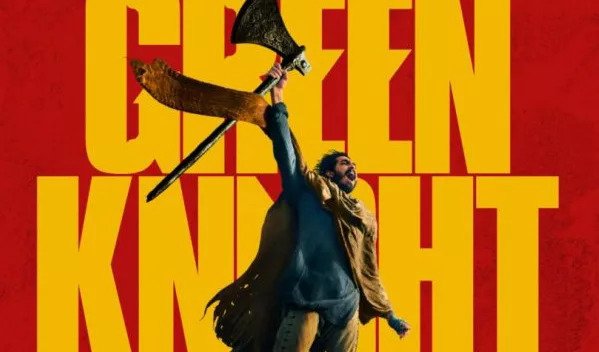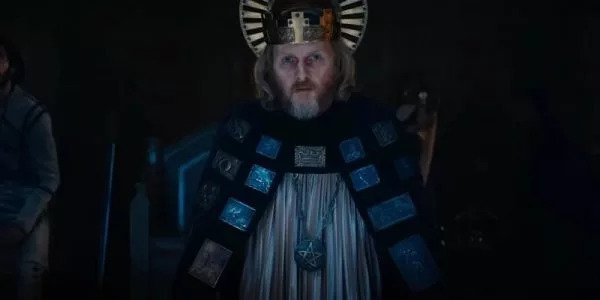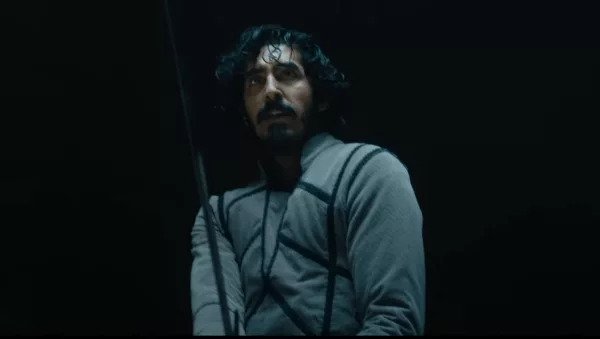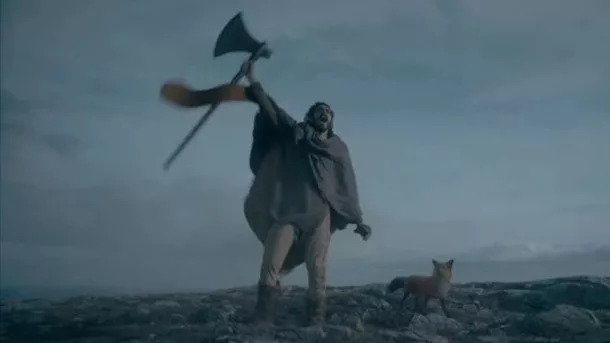
American writer-director David Lowery is best known for A Ghost Story, Pete’s Dragon and The Old Man & The Gun, Robert Redford’s last leading role. With his latest project he makes a foray into medieval folklore with The Green Knight. He recently took time out to talk to Martin Carr about his reasons begin this new direction, as well as the approach he takes to filmmaking as a whole.
What inspired you to adapt The Green Knight to begin with?
The idea of making a movie about a knight on a quest popped into my head, partially because I had just discovered my old Willow action figures. I settled on Sir Gawain and The Green Knight because I had read it in college and that story had always stayed with me. I started reading it originally because I wanted a good jumping off point and thought I might be able to extrapolate something from it. Ultimately, I ended up adapting it page by page and writing the script simultaneously. From one page to the next I was just re-discovering this legend, whilst translating that into a screenplay. Honestly, I didn’t think it would get made, because as a movie it was just way too strange and difficult to pull off on a low budget. However, circumstances being what they were somehow it got made and got made very quickly.

Dev Patel, Alicia Vikander and Sean Harris are just a small part of an exceptional cast. How important was it to pick the right actors for these roles on this particular project?
It was incredibly important and as a result really difficult. The only one that wasn’t really difficult was Alicia, who I met just as I was writing the script. It was finished and she read the very first draft, which lead to us talking about it. Conversations that led to me writing the next draft with her in mind to play Essel and the Lady, so she was involved very early on.
Shortly after that I started thinking about who would be interesting to play Sir Gawain. There were a number of wonderful actors I met and had conversations with, but then I met Dev and sometimes you just know. You meet someone and realise that this is who I want to spend the next eight months of my life making a movie with. That person was Dev and it was instantaneous. We had great conversations about the script, I loved the idea of him playing a knight and wanted to see him up on a horse. However, sometimes you just spend five minutes with someone and you know you want to follow them into battle.
King Arthur was a hard one to cast as well and not for lack of actors. However, I wanted to do something different. I didn’t want to have a broadly stentorian King Arthur, and we were already in Ireland when I thought of Sean. For me, when it comes to actors like Sean, I want to see them play characters which allow their inner beauty to come through. Most audiences are going to know him from Mission: Impossible at this point, but as much as he has done other amazing work, those are the projects with the most cross over. Meaning it would be quite the coup to cast him as a kindly King Arthur, because I knew he had that kindness to him.

He has quite a benevolent presence in the film.
He does and its funny, because I had written King Arthur as this frail dying king and Sean played that as well. To the point where some of our crew just assumed he was very ill. However, alongside that he brought so much warmth to a king who knows he nearing the end of his reign and wants to bequeath that goodness to a successor. Sean did so much work to suggest that through his performance.
To what extent to do you think the delays in terms of release in some countries, have helped maintain momentum and garner interest in The Green Knight?
It did benefit the film I can’t deny that, because before the pandemic we were just really rushing to finish it. Part of the reason being I was about to go and start shooting another movie, so had to have it done by a certain date or I wouldn’t be able to work on it anymore. Which meant I was just rushing, that for me translates into a term called ‘hate cutting’. A situation where I wasn’t giving myself time to love it, but just trying to get the film under two hours and releasable.
Then of course, post production on The Green Knight and the shooting of my next film were put on hold for a year. That allowed me to take some time away and revisit it with fresh eyes and see what I had neglected to notice before. Two things being the beauty and thematic relevance I had cut out. I had honestly been too judicious with the scissors and this situation allowed time to let the movie breathe.
I was not only able to finish all of the visual effects, but also just on a narrative level and storytelling level able to put things back in. However, the movie is no different in terms of story, scenes and structure. The last twenty minutes and first ten minutes are exactly the same, but as a whole it just has a different pace and cadence. The result being, that what this movie is about is made better through the time I was given.

To what extent to you think The Green Knight explores storytelling in a broader sense?
That is a great question and the facetious answer is that all movies are about storytelling. I could say that Inception is about Christopher Nolan making a movie, but obviously all of his movies are about more than that.
Maybe I mean, to what extent does The Green Knight explore different modes of telling stories.
I have to admit you have caught me off guard a little bit, because I focus so much on storytelling in my movies, and I have made movies in which every character tells a story, or regales someone with a tale. Whether it’s Bob Muldoon in Ain’t Them Bodies Saints telling the story of how he escapes, or in my movie Pioneer, which is entirely a bedtime story. There is always a sense of storytelling and the ways that storytelling can obfuscate the truth, illuminate the truth or enhance the truth.
To be honest, I’m not sure I was thinking too much about that when I was making this one. I wasn’t consciously thinking about it, except when Gawain and the King are talking and the King says ‘tell me the story of yourself’ and Gawain says ‘I don’t have one’. You have made me realise this is the film I have made where the main protagonist isn’t spreading their own legend. Every movie I have made is so much about that, but this one is about someone who hasn’t found their story yet. You have given me a new perspective on my own movie.

Having written, directed, produced and edited this film, how do you think The Green Knight has benefitted from having that level of creative control?
I think all of those hats fall under the banner of film making for me and given the chance to do them all I will. Sometimes it’s really helpful to have help, and when I have worked on movies with an editor, I have really enjoyed that process. Obviously, I have my producing partners James (M. Johnson) and Toby (Halbrooks) who have done most of my movies and I love that collaboration. However, I like to be as involved as I can but think the key point is writing the script. Once you have done that, you have set a precedent about going forward and how the movie is going to get made.
For me writing is not about writing, but represents that first step towards directing, whereas editing is probably the last. That being said, even when I’m working with an editor, as I am now with Lisa Zeno Churgin who has cut three of my movies, I’m still there cutting as well. Editing is something I have to get my hands dirty with, because that is part of directing for me.
I also rarely have final cut on my movies; The Green Knight and A Ghost Story were the only two. A Ghost Story because that was just me making it, whereas The Green Knight was the first time I had a contractual final cut clause, if it was delivered under a certain run time. However, it didn’t feel any different because in spite of the fact I didn’t have final cut on those other ones, I had written and directed them and had people who trusted me do those jobs. Because of that, there was never any need for oversight or interference.

Ain’t Them Bodies Saints was the first one where I had other producers and financiers and felt the pressure. Even though I ultimately had control over it, I felt like I was trying to please people with that movie and it didn’t feel good. I felt to a certain extent that the film was compromised because I was trying to make too many people happy. Since then, I have tried to make the movie I wanted to make and trust that the people who are involved, whatever their part in the process, are on the same page as me.
Something which has turned out to be true, even making a movie with Disney, where I definitely don’t have final cut. Yet Pete’s Dragon as released is pretty reflective of that first assembly and the look book I put together to get the job. They all feel exactly like the movies I wanted to make, even when I haven’t had that creative control on a contractual level, which is a gift.
The Green Knight launches on Prime Video and in theatres on September 24th.
Many thanks to David Lowery for taking the time for this interview.


